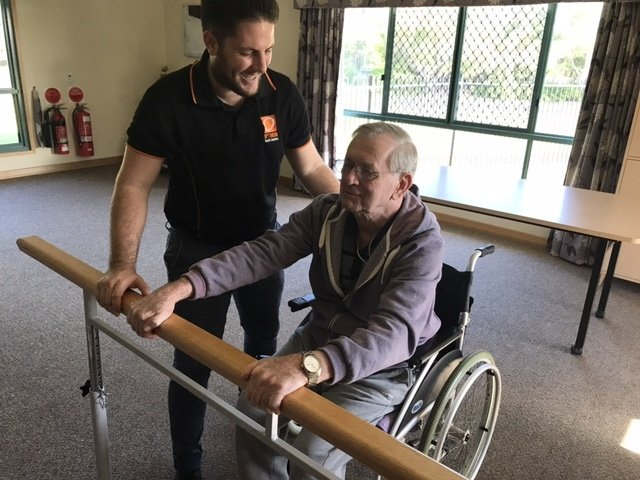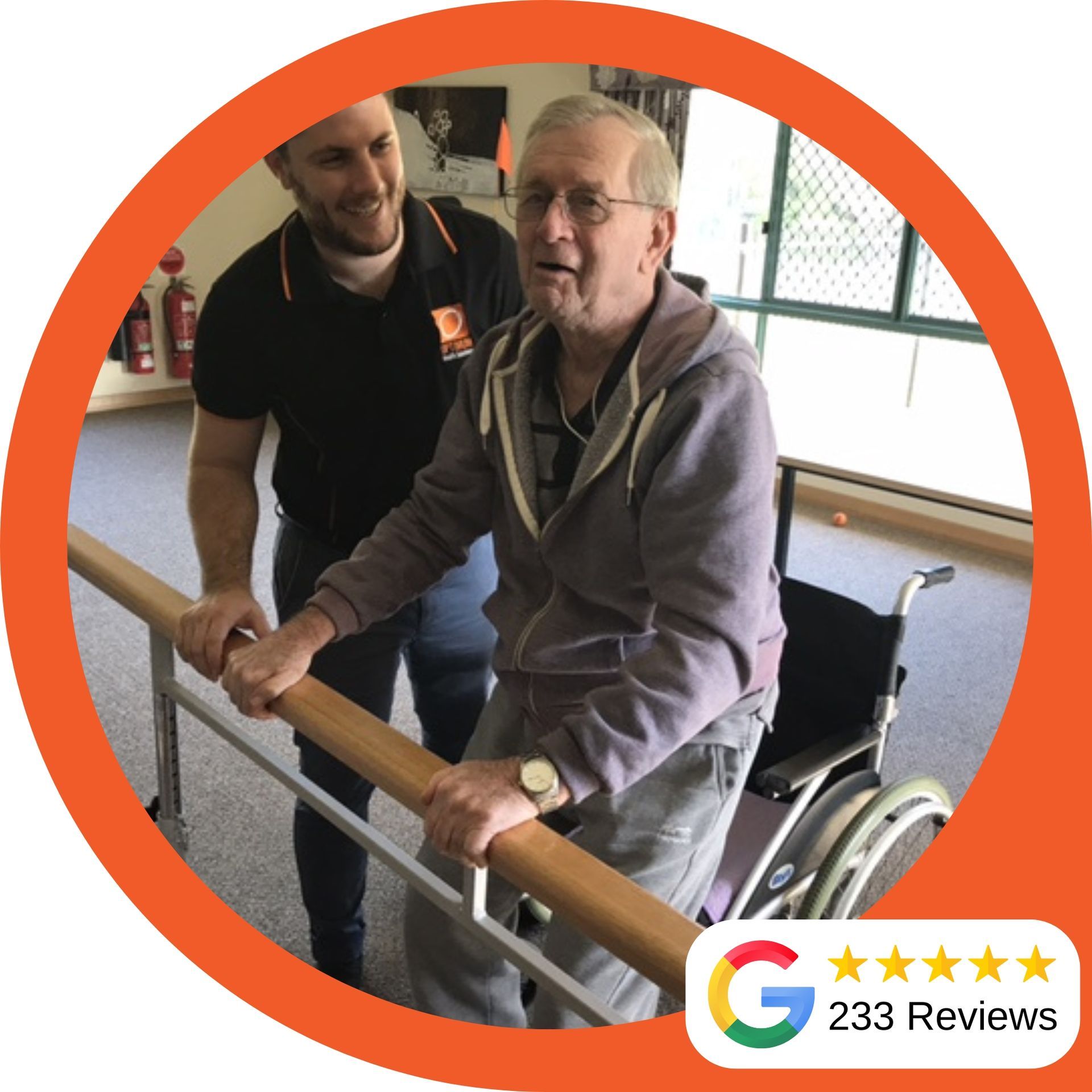The Role of Exercise in Aged Care Physiotherapy Treatment | Optimum Allied Health
The Role of Exercise in Aged Care Physiotherapy Treatment

If you are an aged care client or the relative of an aged care client (this could be a client receiving
care in their own home or care in a
residential aged care facility), it is likely that you have heard about
physiotherapy and understand how it can help with a range of medical issues.
However, when it comes to aged care, there is a unique role for a physio to play in helping these patients manage their conditions and improve their quality of life.
In this blog post we will take a look at the various benefits that are associated with physiotherapy treatment for elderly people, highlighting key elements such as lifestyle modification, falls prevention strategies, improved balance and coordination as well as pain management.
Additionally, we will provide information on how to find appropriate services so you can ensure your aging relative receives the highest quality in health therapies tailored specifically to their individual needs.
1. Range of motion exercises:
These exercises are designed to help increase flexibility and mobility in the joints. They can be done using simple movements, such as reaching and stretching, or using equipment such as resistance bands or weights. Range of motion exercises are often used to help seniors recover from injuries or surgeries, or to prevent stiffness and immobility.
2. Strength training exercises:
Strength training exercises are designed to help build muscle mass and improve overall physical strength. They can be done using equipment such as dumbbells or resistance bands, or using bodyweight exercises such as push-ups and squats. Strength training can help seniors maintain their independence and prevent falls by improving balance and stability.
3. Cardiovascular exercises:
Cardiovascular exercises are designed to increase heart rate and improve cardiovascular fitness. They can include activities such as walking, cycling, or swimming. Cardiovascular exercises can help seniors maintain their cardiovascular health and prevent conditions such as heart disease or stroke.
4. Balance exercises:
Balance exercises are designed to improve balance and stability. They can include activities such as standing on one foot or walking heel to toe. Balance exercises can help seniors prevent falls and maintain their independence.
It's important to note that the type of physiotherapy exercises used will depend on the individual needs and abilities of the senior. A physiotherapist will work with the senior to create a personalised exercise plan that is tailored to their specific needs.
How you can access physiotherapy for yourself, your family member or your client
Accessing physiotherapy for a senior can be done in a few different ways. Generally the first step is to consult with a healthcare provider, such as a GP, your aged care facility or your home care package provider, to determine if physiotherapy is necessary and appropriate for the senior's individual needs. However, you can always book directly with a physiotherapist by simply calling their office or booking online.
If physiotherapy is recommended, the healthcare provider will typically refer the senior to a physiotherapist. You can often visit the physiotherapist in the clinic (Our Clinic locations: Gold Coast, Tweed Heads, Ballina, Yamba, Grafton and Coffs Harbour).
Seniors who are eligible for
home care services through the government may have access to physiotherapy through those services. These programs include Short Term Restorative Care Program (STRC), Home Care Packages, Commonwealth Home Support Funding (CHSP) and more.
Medicare benefits are available for physiotherapy services for seniors who have a chronic medical condition or are referred by a GP under the Enhanced Primary Care (EPC) program. Generally you will have a co-payment with physio services with an EPC referral but some physiotherapy clinics do offer
You can always book privately to see a physiotherapist and with the appropriate private health insurance cover, most health insurance providers will also cover physiotherapy services with a partial rebate of the cost of ther services.
If the senior is living in an
aged care facility, they should have access to on-site physiotherapy services. The facilities provide physiotherapy in some circumstances (such as post fall and post hospital recovery) but are not required to provide physio in all circumstances. In some cases, the senior may need to pay for these physio services, but this will depend on the specific facility and the senior's individual circumstances. It's always recommended to check with the facility or the senior's healthcare provider for more information on the availability and cost of physiotherapy services. Residents access to physiotherapy services has greatly improved since the introduction of ANACC funding model, which replaces ACFI in October 2022.
In conclusion, physiotherapy for aged care plays a vital role in maintaining the physical health and well-being of older adults. By understanding the different types of exercises used in physiotherapy, we can help seniors maintain their mobility, strength, and independence, and prevent falls and other accidents.



